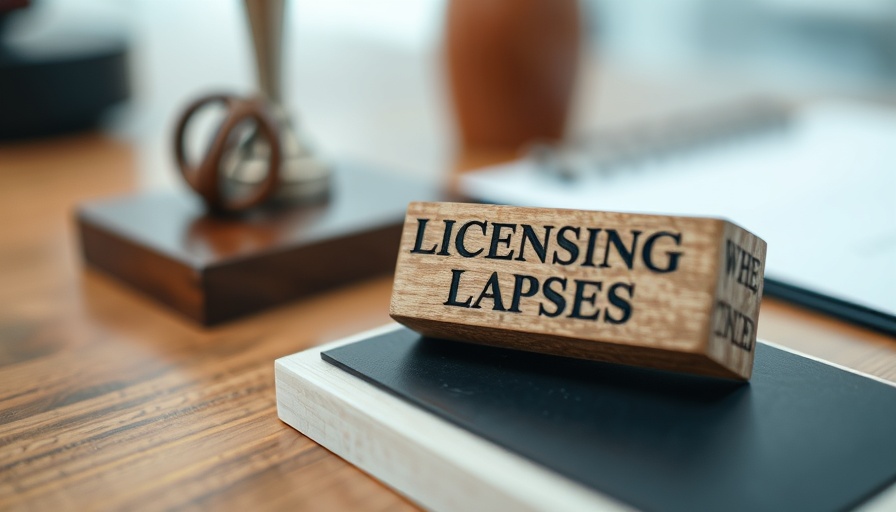
The Costly Consequences of Lapsed Contractor Licensing
The recent case of Incident365 Florida, LLC v. Ocean Pointe V Condominium Association underscores a growing concern for contractors: the ramifications of operating without valid licensing. When Hurricane Irma struck, Incident365 provided vital disaster recovery services, including essential water damage mitigation and unsalvageable material removal. However, the absence of the proper licensure led to a staggering $1 million dispute, highlighting how critical contractor licensing is in enforcing contracts in Florida.
The Legal Framework: Understanding Florida Licensing Laws
According to Florida law, specifically section 489.128 of the Florida Statutes, engaging in unlicensed contracting renders any agreements unenforceable. This provision acts as a safeguard against unqualified service providers, ensuring consumers are protected. In the case at hand, the condominium associations argued that Incident365's lack of licensing made it impossible to collect on payment claims, as numerous activities performed fell under the statutory definition of a contractor's work.
Dissecting Responsibilities: What Constitutes a Contractor’s Work?
The crux of the dispute was whether Incident365's activities could be considered construction or repair. The court's evaluation centered around section 489.105(3), which defines contracting services broadly. Tasks such as removing damaged materials, dehumidifying structures, and implementing anti-microbial applications were examined. While some operations were not directly associated with repairs, the determination still hinged on how intertwined those tasks were with the overall project. The court's finding revealed that a significant portion of the work did necessitate a contractor's license, raising questions about how projects should be legislated and contracted in high-stakes scenarios.
Lessons Learned: Best Practices for Contractors
For contractors, the takeaway from this case extends beyond just the financial implications. It highlights the necessity of maintaining valid licenses and ensuring contractual agreements accurately reflect the scope of work and legal requirements. Here are key strategies contractors should adopt to mitigate the risk of similar disputes:
- Regularly Update Licenses: Ensure that licensing is always current and reflects the company’s capabilities.
- Thorough Contract Review: Engagements should be meticulously drafted to encapsulate all aspects of the work, including the requirements concerning licensing.
- Granting Clear Definitions: Avoid ambiguity by clarifying which tasks necessitate licensed contracting and under what circumstances.
Future Implications: What Lies Ahead for Contractors?
This case may serve as a precedent for future contractor disputes in Florida, urging stricter compliance with licensing laws. Additionally, as natural disasters become more frequent due to climate change, the need for reliable contractors who can respond effectively becomes paramount. Stakeholders across the construction industry must interpret these laws with precision to avoid setbacks in recovery efforts.
Final Thoughts: A Call to Action for the Construction Community
The implications of operating without a proper contractor’s license can be severe. In every aspect of construction—from budgeting to execution—regulatory compliance is critical. Florida’s legal landscape, particularly concerning contractor licensing, is complex and changing continuously. Contractors must adopt proactive measures and stay informed about licensing requirements, ensuring they can execute contracts competently and legally.
As the construction industry navigates these turbulent waters, it is crucial for all stakeholders to remain vigilant regarding licensing regulations, as doing so will not only protect them legally but also uphold industry standards in quality and safety for clients. Let this case serve as a reminder that in construction, knowledge of the law is just as important as expertise in the trade.
 Add Row
Add Row  Add
Add 




 Add Row
Add Row  Add
Add 

Write A Comment